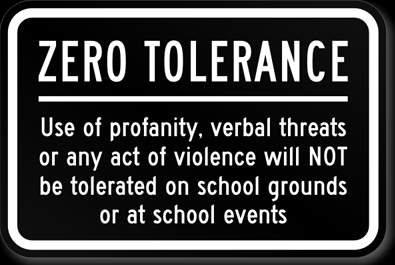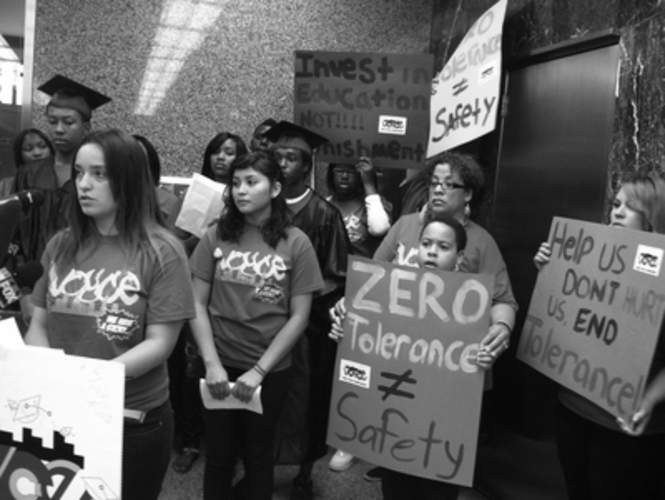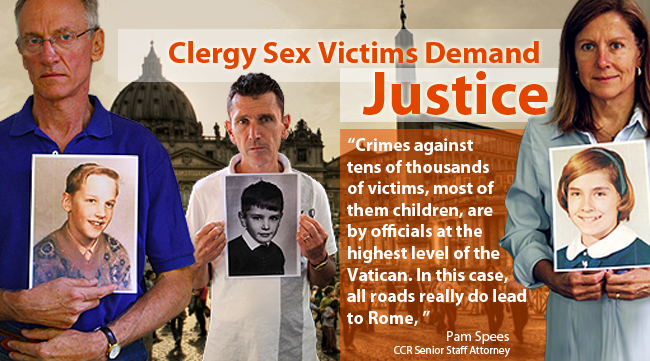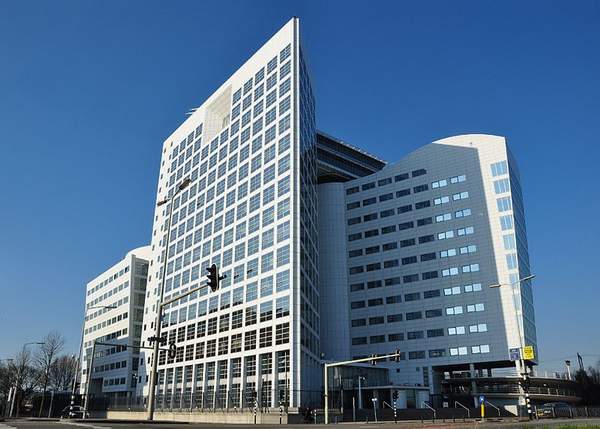Podcast: Play in new window | Download
Updates:
- FISA Court Surveillance: Supreme Court Allows, You Have No Standing
- Hosts Discuss CIA Sponsored Cinema
——–
Zero Tolerance Policy: School to Prison Pipeline?
As many listeners may know, zero-tolerance school policies will punish any infraction of a rule regardless of whether it was an accident, a violation out of ignorance or extenuating circumstances. Schools normally forbid cell phones, profanity etc, but with a zero tolerance policy, breaking these rules often result in an inordinately harsh punishment such as suspension or expulsion. These policies are promoted to prevent violence and drug abuse in schools but for years critics have pointed out the subjective nature of these decisions on certain students with disciplinary problems. Some difficult students could become targets of the zero tolerance policy, become less educated by multiple suspensions and expulsion which often lead them into the criminal justice system.
- Zero tolerance grew out of a philosophy of school discipline that really came out of the 1980s, a period where we believed because youth violence was accelerating in our communities, that we were in real danger of being overwhelmed by violence in school settings.
- Interestingly enough data since then has shown us that was never really the case.
- Rates of disruption in schools have remained constant in a 30 or 40 year period.
- Out of that fear grew a response that said the only way we’re going to defend against that and keep our school safe and our students and teachers safe will be by punishing harder and frequently minor incidences we can send a message to kids that certain behavior won’t be acceptable and that will deter other kids.
- Zero Tolerance came out of Broken Windows Theory.
- The Reagan administration used a program in the San Diego harbor where even trace amount of drugs would lead to confiscation of ones boat and an appearance in federal court.
- When there’s a fear response, there does tend to be a belief that we don’t have time to look at the data we just need to do anything necessary to protect out kids.
- Its a dangerous way to make policy.
- The case in Georgia where a girl has a Tweety Bird wallet attached to her backpack with a two inch chain. That was considered a weapon. We all react in horror to those extensions.
- But the more central question is. . . is it effective?
- The APA put together a Zero Tolerance Task Force and they found after a year of studying hundreds of documents that there was no evidence that Zero Tolerance made any contribution to school safety or improvements to student behavior.
- It’s often referred to as the school to prison pipeline. In the last few years there has been a lot of data accumulating that yes in fact that’s the case.
- It’s not a direct line, but there are a lot of links there that kids that are expelled are more likely to be disengaged.
- It has a negative correlation with school achievements.
- We’ve known for a long time that African American students are disproportionately represented.
- Race is still a contributor to disproportionality. Poor black kids are more likely to be suspended than poor white kids but so are middle class. . .
- More African Americans in the school tends to lead to harsher punishment.
- More teachers of color seems to result in reduced rates of disparities.
- We (need) to put programs in place like “conflict resolution” or “positive behavior support” that make clear the expectations for all kids.
- Or mentoring, we know a lot of these situations come from kids who are alienated from school.
- APA Zero Tolerance Task Force / Equity Project – Indiana University / Civil Rights Project – UCLA
Guest – Professor Russ Skiba, professor in Counseling and Educational Psychology at Indiana University, and directs the school outreach practicum in the School Psychology Program. He was a member and the lead author of the American Psychological Association’s Task Force on Zero Tolerance
———
Pope’s Resignation May Make International Prosecution Easier
We continue to look at accountability within the church for widespread systematic sexual assault and violence against tens of thousands of victims, mainly children. As many listeners may know, the church’s main priority has been to protect itself and its power instead of insuring the protection of the children in the church and others vulnerable to abuse by priests. The pope is responsible for these criminal acts with direct involvement in covering them up. Now that Pope Benedict XVI is resigning, international prosecution will be easier for national systems of justice. The Center for Constitutional Rights has filed a case with the International Criminal Court on behalf of the organization Survivors Network of those Abused by Priests (SNAP) against the pope and other high-level Vatican officials for crimes against humanity in September 2011 and provided additional documentation in the case in April 2012. The prosecutor is currently reviewing the evidence
- SNAP is a network of survivors who try to help each other with the experience of being either raped, abused, or sodomized by authority figures.
- I think one of the wonderful things that have happened is there is more attention toward this.
- There was a time when print journalism wouldn’t touch the church. They were really able to act under secrecy.
- When I was abused it was the 60s and my father was dying and the priest suggested that if I did certain things a miracle might be wrought.
- After my father died and the miracle wasn’t wrought, I understood more of what was done and tried to go to pastor of the local church.
- There were no places I knew of to turn.
- Eventually I got therapy, I married, I got children.
- What happened in 2002 in Boston, was really the thing that made me become an activist.
- The court is looking at this very seriously, they met with us. This is a court that doesn’t have immunity.
- What I would like to see is accountability and some sort of change that this will not happen again.
Guest – Mary Ward Caplan, leader of Survivors Network of those Abused by Priests (SNAP) in New York City.
———-
- In September 2011, we filed a complaint with the prosecutor of the International Criminal Court, asking to investigate and prosecute 4 highest officials for their role in basically creating the policies and practices that church officials follow around the world, which serves to conceal the widespread sexual violence against children and vulnerable adults.
- Other than conceal, these policies and practices serve to perpetuate it.
- We filed these complaint along with 22 thousand pages of documentation and evidence that’s been gathered in different countries around the world – showing how the high level officials within the Vatican are involved. We’re asking for a criminal investigation and prosecution.
- His resignation does create more opportunity for holding him accountable, specifically in national levels where you have a sitting head of state could actually be a bar to a prosecution for a civil case.
- It’s important to understand we’re not talking about a few bad apples. It is the culture of sexual violence that has built up within the church.
- I think what we’re going to be seeing in the next months is more revelations.
- The committee has ordered the Holy See to report to it this year. This will be the first time an international body with any kind of oversight over the Holy See will be making the Holy See answer questions about the crisis of child sexual abuse in the Holy Church.
Guest – Pam Spees, senior staff attorney in the international human rights program at the Center for Constitutional Rights. She has a background in international criminal and human rights law with a gender focus, as well as criminal trial practice. She serves as lead counsel on several of CCR’s cases and initiatives including, Sexual Minorities Uganda v. Lively, a case brought against a U.S. based anti-gay extremist for his role in the persecution of LGBTI people in Uganda; Murillo v. Micheletti, a case brought by the parents of a youth killed by the coup regime in Honduras; and in the legal effort to hold Vatican officials criminally responsible for the crimes against humanity of rape and sexual violence within the church.
——————————————————————————-



